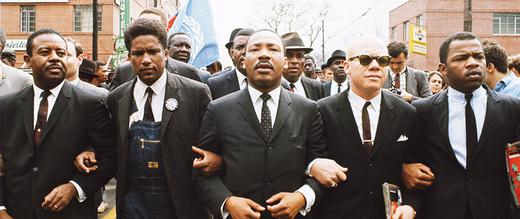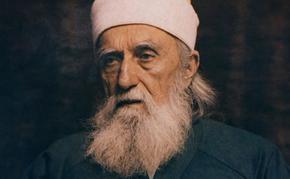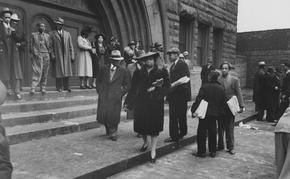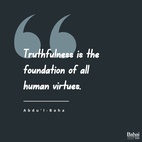The views expressed in our content reflect individual perspectives and do not represent the official views of the Baha'i Faith.
The first Utterance of the Wise One is this: O ye Sons of Earth! Turn from the night of foreignness to the shining of the Sun of Unity. This is that which shall benefit the people of the world more than aught else. – Baha’u’llah, quoted in Star of the West, Volume 1, p. 7.
When I first saw the Reverend Martin Luther King, Jr. on the news, I looked into his face and listened to the cadences of his speech on our little black-and-white TV screen and sensed something significant and powerful. I was eleven years old. I didn’t know what I sensed, but it moved me. Looking back on it now, I realize that I could feel his plea for justice deep in my boy’s heart.
Earlier that week, in the little town of Moses Lake, Washington where I grew up, I had heard one of the mechanics who worked with my father at Boyle Chevrolet refer to him as “Martin Luther Coon.” I had no idea what that meant, probably because I’d never heard such a vengeful, mean-spirited racial slur before. But from the snide, spiteful tone of his voice, and the dismissive look on his angry face, I could tell he didn’t intend it kindly. I can remember wondering where his hatred came from.
At the time, up in the great grain fields of the Northwest, we didn’t have very many black people around, so it may have been a foreign experience for that mechanic to see an articulate black man on television. I once had an African-American friend at my school in the fourth grade, but he had moved away when his father couldn’t get any work. He and his sister were the only black kids in town, until they left, and then there were none. Hardly any Negroes—that’s the word my mother taught me, to be respectful, she said—ever appeared in the newspaper or on television where we lived. I’d never known any black adults except two—Mr. and Mrs. Harrison, who lived across the street from us. He and his wife had befriended me when I was eight.
Mr. Harrison didn’t resemble anyone I had ever known. He had dark skin, a gentle, deep bass voice, wore suits and ties and used big words when he spoke. In the summer, through his screen door, I could hear him listening to music he called jazz. His living room looked like the future, with its strange Danish modern furniture and lamps that resembled spaceships. He drove a German Opel, not a Ford or a Chevrolet like everyone else.
Mr. Harrison and I became friends when I asked him about rockets. My mother told me he worked as a scientist at the Air Force base nearby, so I saw him out in his yard one day and mustered up my courage and asked my questions. He seemed surprised, but he answered kindly, showed me some books and we became friends. It was an unlikely friendship–a black rocket scientist with something on his wall called a PhD, and a scrawny white kid whose curiosity occasionally overcame his shyness.
Mr. Harrison—I can’t remember ever hearing his first name, and I had been taught to respect my elders, so I never asked–would invite me over on Saturdays to talk about science. He played records from people like Ornette Coleman and Thelonius Monk; and we would discuss the mysteries of life, the stuff I couldn’t figure out. His demure wife would bake us cookies.
I loved Mr. and Mrs. Harrison. His patience, the logical way he explained the way things worked, those delicious cookies she baked, her sweet smile, his individuality and his new and completely original view of the universe all fascinated and impressed me. I only realized later, after I had lost contact with Mr. and Mrs. Harrison when my family moved away, that what impressed me most was their kindness. He didn’t need to educate me about science, but he did. Generous with his time, fascinating and intellectually advanced beyond anyone I’d ever known before, Mr. Harrison built a bridge into a child’s mind and, even more important, straight into my heart. In his heart he had no trace of foreignness, like the Baha’i writings advise us all, and saw only the sun of unity.
Three years passed between the time I first met Mr. Harrison, and when I saw Reverend King on television. I didn’t understand it then, but I realize today that Mr. and Mrs. Harrison’s befriending of a boy like me gave me the context and the experience and the love I needed to feel and understand Dr. King’s plea for justice. I can still hear Mr. Harrison’s voice in my head, and now, maybe because of the similarity of their vocal tone and their clear enunciation, it sounds a great deal like Dr. King’s powerful speech patterns. For my lifelong belief in love and unity between all people, I owe Mr. and Mrs. Harrison a very great debt of gratitude.
O peoples of the world! The Sun of Truth hath risen to illumine the whole earth, and to spiritualize the community of man. Laudable are the results and the fruits thereof, abundant the holy evidences deriving from this grace. This is mercy unalloyed and purest bounty; it is light for the world and all its peoples; it is harmony and fellowship, and love and solidarity; indeed it is compassion and unity, and the end of foreignness; it is the being at one, in complete dignity and freedom, with all on earth. – Abdu’l-Baha, Selections from the Writings of Abdu’l-Baha, p. 1.

















Comments
Sign in or create an account
Continue with Facebookor